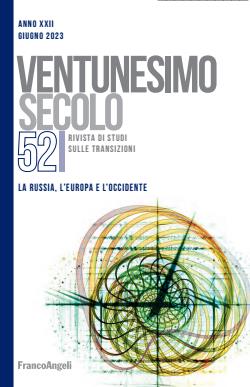- Teodoro Tagliaferri, La Russia, il mondo e l’Occidente: Toynbee interprete della prima Guerra fredda
Saggi
Recensioni

VENTUNESIMO SECOLO
Rivista di studi sulle transizioni
2 fascicoli all'anno, ISSN 1594-3755 , ISSNe 1971-159X
Prezzo fascicolo (inclusi arretrati): € 44,00
Prezzo fascicolo e-book (inclusi arretrati): € 38,00
Canoni 2024
Biblioteche, Enti, Società